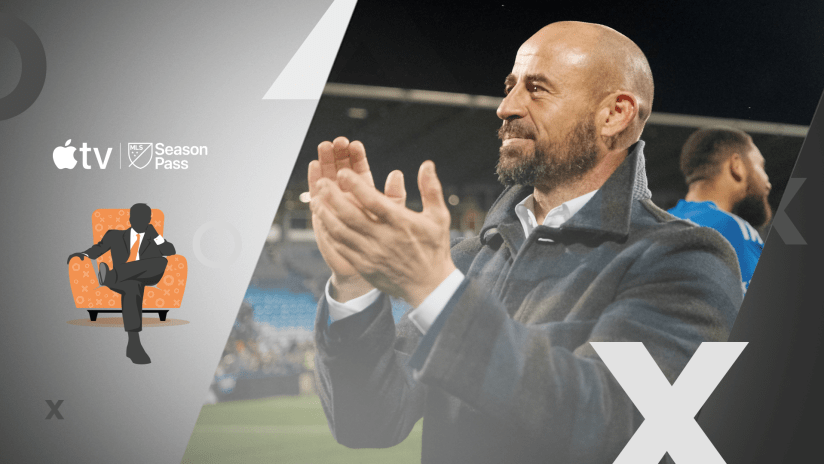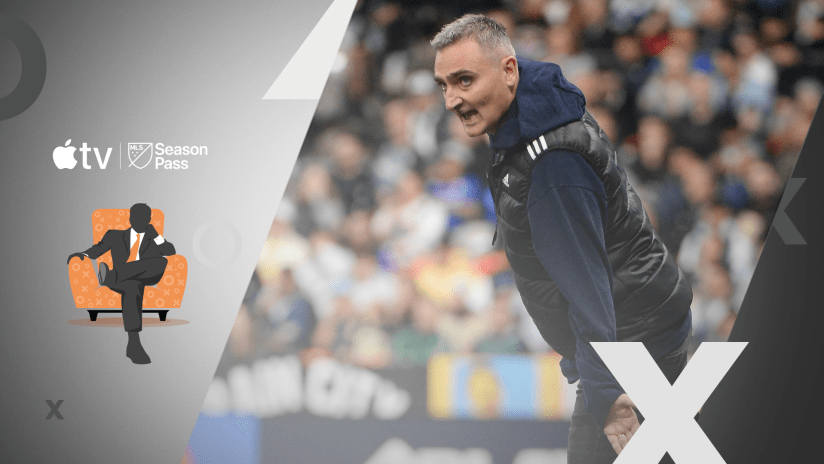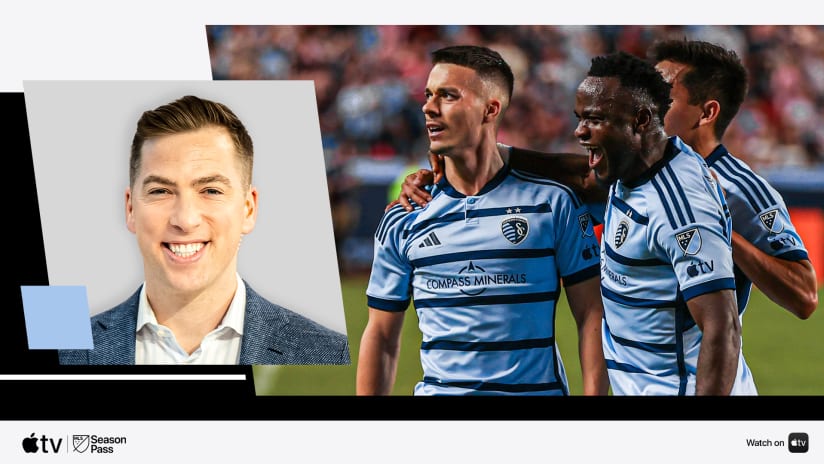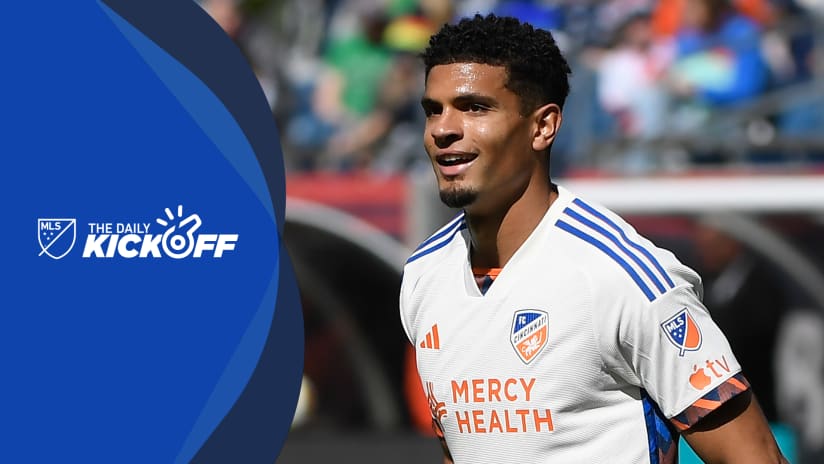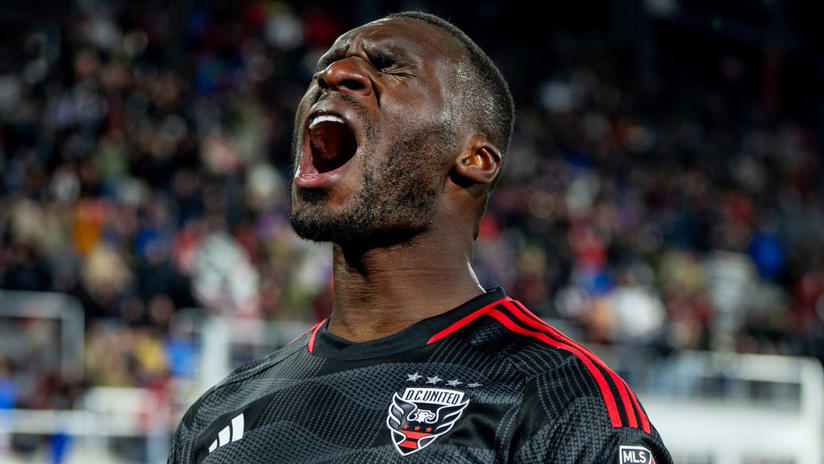Here's a paradox: There is no one way to build an MLS Cup contender. And yet, there is only one way, and that's "use every method at your disposal to acquire and integrate talent."
Teams that are heavily SuperDraft-reliant, like Sporting KC or New England Revolution, can and do win in MLS, but they find talent through other means as well -- star players like Benny Feilhaber or Lee Nguyen picked up off the scrapheap; veteran internationals like Jermaine Jones or Soni Mustivar brought in from overseas; afterthought 'keepers like Tim Melia or Bobby Shuttleworth groomed into everyday starters.
Teams like LA and New York tend to get less of their lineup from the SuperDraft, but the Galaxy's dynasty was built just as much upon the likes of Omar Gonzalez and A.J. DeLaGarza as it was upon David Beckham or Juninho, while the Red Bulls still find room for the occasional Tim Ream or Chris Duvall. We can put FC Dallas and Real Salt Lake into that group as well.
And quite probably we can add Columbus Crew SC and Portland Timbers, who face off in the 20th MLS Cup this Sunday (4 pm ET; ESPN | WatchESPN | UniMas | TSN | RDS2) at MAPFRE Stadium. Neither has heavy representation from the SuperDraft, but each has gotten crucial pieces via that route. Each has imported an Argentine Designated Player to run the midfield. Each has sought out an MLS veteran to organize the back line.
There are, however, some differences. Here's a quick look at what I think are the crucial personnel decisions by Gregg Berhalter and one side, and the Timbers braintrust of Caleb Porter and Gavin Wilkinson on the other:
Come Together
The "rebuilding" job Gregg Berhalter has done in his two years in Ohio is one of my favorites in league history because it wasn't really a rebuilding job. Rather, it was a reassessment and reimagining of the defining talent already at his disposal.
Crew SC are, to put it bluntly, all about that midfield. They usually dominate how and where the game is played, leaning heavily on the central midfield trio of Wil Trapp, Tony Tchani and Federico Higuain, while Justin Meram plays inverted on the left to help in possession and creativity and Ethan Finlay plays as an old-fashioned wide forward on the right to stretch the field and offer off-the-ball penetration. They combine skill, smarts, tactical flexibility and athleticism into one package.
And every single one of those guys was in the team before Berhalter arrived. Higuain, signed as a DP in 2012, was used almost exclusively as a second forward in the previous regime, Meram (drafted in 2011) and Tchani (acquired in the middle of 2011 via trade) saw sporadic minutes, and Finlay (drafted in 2012) was about 25th on the 30-man depth chart. Only Trapp, who arrived from the academy in mid-2013, was a starter in the same role he has today.
It took a while to get the right pieces in place on the back line and in goal behind that group, and obviously snatching center forward Kei Kamara last autumn was a coup. Soccer's a team game, and losing any one of the first 15 or so players on the Columbus roster would hurt the whole group, regardless of how their onboarding process occurred.
Regardless, the best thing Berhalter's done as a manager is coach up the talent already on hand. Get the spine right, and you can figure out the other pieces in time. Get the spine wrong, and you're struggling to make the playoffs.
This is something that happens rarely -- new coaches tend to want to make wholesale changes in order to put their own stamp on the team, and coaches in all sports get jobs by pointing out what's wrong with a roster. Berhalter figured out what was already right, and how to make it even better.
There's a refreshing lack of ego and dogmatism in that approach.
The Long And Winding Road
The Timbers have been habitual acquirers of overseas talent from Day 1 -- before Porter's arrival -- and they're annually near the bottom of the list of minutes played by locals (for my purposes: Americans, Canadians, and anyone who's played college ball). They've also been slow to develop their own academy, and are one of two MLS teams, along with New York City FC, that have never put a Homegrown player out on the field.
They are iconoclasts in that sense. When they take the field on Sunday, they'll likely do it with just four Americans in the lineup, which would be by far the fewest ever for an MLS champion.
What's striking about the Timbers, though, is just how wide a net they cast. Yes, their collection of Argentines garners the most attention, but their right back is from the Caribbean. Their starting center forward and starting goalkeeper are both from Africa, and their DP center back is from England. They have two Colombians in their regular rotation as well, and a backup 'keeper from New Zealand.
A steady stream of comings and going characterize how this team has been constructed, and to Porter's credit he always seems to have them playing better at the end of the season than they were at the start. He's also been able to both soothe egos and encourage improvement out of the likes of Jorge Villafana, Fanendo Adi and Darlington Nagbe. It hasn't always been steady, but it's clearly worked.
For all that, the constant has been the presence of Diego Valeri and Diego Chara in central midfield. Portland were among the first teams in the league to go out and get talent of that caliber in their prime, and they've reaped the benefits.
So like Crew SC, they're just 90 minutes away from having something tangible to show for it.
Ours is a copycat league so rest assured that other teams are taking note. There will be new Charas and Valeris in the league come 2016, and there should be new hope in Chicago and the Bronx that new managers will show a commitment to getting the best out of the talent already on hand rather than gutting rosters and starting over.


